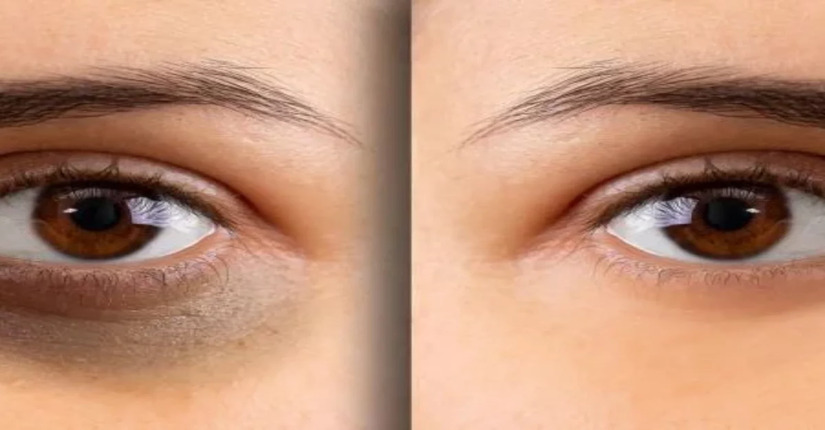Dark Circles Around Eyes: Hidden Risks You Should Know
Dark circles around the eyes have always been a common concern, but they are not as harmless as you might believe. Most people associate them with lack of sleep, stress, or aging. However, the underlying causes are often more complex. Dark circles around eyes are not that subtle as you think them to be, and their appearance can reveal hidden health risks. It’s important to understand these risks and how to address them effectively.
What Causes Dark Circles?
Dark circles appear when the skin beneath your eyes becomes discolored or thinner. This makes the blood vessels underneath more visible. Several factors can contribute to this condition, including lifestyle choices and genetics. Understanding the real causes is essential.
Hidden Health Risks Behind Dark Circles
1. Sleep Deprivation and Its Effects
Poor sleep is one of the most common causes of dark circles. When you don’t get enough rest, blood flow to your eyes is disrupted, which can result in darker skin under your eyes. Over time, chronic sleep deprivation can also lead to:
- Weak immune system: Lack of sleep makes you more susceptible to infections.
- Hormonal imbalances: Sleep deprivation can cause hormone fluctuations, affecting skin health and increasing puffiness.
2. Allergies: The Silent Culprit
Many people overlook allergies as a cause of dark circles. When your body reacts to allergens, it releases histamines. This can cause blood vessels under your eyes to swell and dilate, leading to the appearance of dark circles. Symptoms like itching, swelling, and redness may also appear. Allergies can point to other underlying health issues, including:
- Hay fever or seasonal allergies: These conditions worsen dark circles, especially if left untreated.
- Chronic sinus problems: Persistent sinus infections or asthma can also contribute to the issue.
3. Nutrient Deficiencies and Skin Health
A lack of essential vitamins and minerals can worsen dark circles. For instance, deficiencies in Vitamin K, B12, and iron affect blood circulation and skin health.
- Iron deficiency: Low iron levels can cause anemia, which results in paleness and dark circles.
- Vitamin K deficiency: This vitamin helps with blood circulation. Without enough, blood vessels become more visible, making dark circles more noticeable.
4. Dehydration: The Overlooked Cause
Dehydration is another factor that worsens dark circles. When your body lacks proper hydration, the skin beneath your eyes becomes thin and dry, making blood vessels more visible. Dehydration can also cause fatigue, which worsens puffiness and dark circles. Prolonged dehydration can lead to:
- Kidney issues: Dehydration can strain kidney function over time.
- Dry skin: The lack of moisture in your skin makes dark circles stand out more.
5. Serious Health Conditions
Dark circles can sometimes signal underlying medical problems that need attention. Conditions like chronic sinus infections, thyroid issues, and kidney disease are linked to dark circles. If dark circles are accompanied by symptoms like swelling, changes in skin tone, or fatigue, it’s important to consult a doctor for proper diagnosis and treatment.
6. Genetics: A Natural Factor
In some cases, dark circles are simply genetic. If your family members have dark circles, you may be more prone to developing them. These dark circles tend to be persistent and may appear as a natural part of aging.
How to Address Dark Circles
Now that we know dark circles are more than just a cosmetic issue, it’s important to understand how to reduce them and address the underlying causes. Here are some steps you can take:
1. Improve Sleep Quality
Getting 7-9 hours of sleep each night can improve circulation and reduce the appearance of dark circles. If sleep issues persist, consider seeking help from a healthcare provider to address any underlying problems.
2. Stay Hydrated
Drink plenty of water throughout the day. Hydrating your body prevents the skin from becoming too thin and makes dark circles less noticeable. Proper hydration also prevents puffiness and dryness.
3. Treat Underlying Conditions
If allergies, anemia, or any other health issue is causing your dark circles, seek treatment. Managing these conditions can help reduce the appearance of dark circles and improve your overall health.
4. Use Skincare Products with the Right Ingredients
Look for eye creams or serums containing caffeine, hyaluronic acid, or Vitamin C. These ingredients help reduce puffiness, improve circulation, and brighten the skin.
5. Eat a Healthy Diet
Ensure that your diet is rich in vitamins and minerals, especially Vitamin K, B12, and iron. A healthy diet supports skin health and can help improve the appearance of dark circles.
Conclusion
Dark circles around the eyes are more than just a cosmetic issue; they can signal hidden health risks. While sleep deprivation, allergies, and dehydration are common causes, other serious conditions can also contribute. By addressing the root causes and taking action early, you can reduce the appearance of dark circles and maintain healthy skin. If dark circles persist, or if you notice other symptoms, it’s important to seek medical advice to rule out any serious health issues. Your skin often reflects your overall health, so taking care of both will help you look and feel your best.


0 Comment